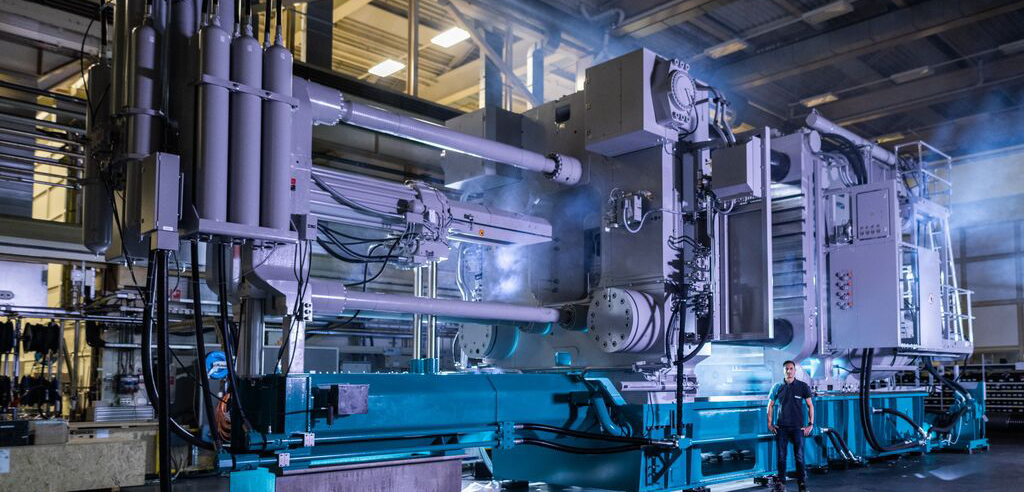Table of Content
Table of Content
1 Quantum Computing Technologies Introduction and Market Overview
1.1 Objectives of the Study
1.2 Overview of Quantum Computing Technologies
1.3 Quantum Computing Technologies Market Scope and Market Size Estimation
1.3.1 Market Concentration Ratio and Market Maturity Analysis
1.3.2 Global Quantum Computing Technologies Revenue and Growth Rate from 2019-2031
1.4 Market Segmentation
1.4.1 Types of Quantum Computing Technologies
1.4.2 Applications of Quantum Computing Technologies
1.4.3 Research Regions
1.5 Market Dynamics
1.5.1 Quantum Computing Technologies Industry Trends
1.5.2 Quantum Computing Technologies Drivers
1.5.3 Quantum Computing Technologies Market Challenges
1.5.4 Quantum Computing Technologies Market Restraints
1.6 Industry News and Policies by Regions
1.6.1 Industry News
1.6.2 Industry Policies
1.7 Mergers & Acquisitions, Expansion Plans
1.8 Quantum Computing Technologies Industry Development Trends under COVID-19 Outbreak
1.8.1 Global COVID-19 Status Overview
1.8.2 Influence of COVID-19 Outbreak on Quantum Computing Technologies Industry Development
2 Industry Chain Analysis
2.1 Upstream Raw Material Supply and Demand Analysis
2.1.1 Global Quantum Computing Technologies Major Upstream Raw Material and Suppliers
2.1.2 Raw Material Source Analysis
2.2 Major Players of Quantum Computing Technologies
2.2.1 Major Players Manufacturing Base of Quantum Computing Technologies in 2020
2.2.2 Major Players Market Distribution in 2020
2.3 Quantum Computing Technologies Manufacturing Cost Structure Analysis
2.3.1 Production Process Analysis
2.3.2 Manufacturing Cost Structure of Quantum Computing Technologies
2.3.3 Labor Cost of Quantum Computing Technologies
2.4 Market Channel Analysis of Quantum Computing Technologies
2.5 Major Down Stream Customers by Application
3 Global Quantum Computing Technologies Market, by Type
3.1 Global Quantum Computing Technologies Revenue and Market Share by Type (2019-2023)
3.2 Global Quantum Computing Technologies Production and Market Share by Type (2019-2023)
3.3 Global Quantum Computing Technologies Revenue and Growth Rate by Type (2019-2023)
3.3.1 Global Quantum Computing Technologies Revenue and Growth Rate of Software
3.3.2 Global Quantum Computing Technologies Revenue and Growth Rate of Hardware
3.4 Global Quantum Computing Technologies Price Analysis by Type (2019-2023)
3.4.1 Explanation of Different Type Product Price Trends
4 Quantum Computing Technologies Market, by Application
4.1 Downstream Market Overview
4.2 Global Quantum Computing Technologies Consumption and Market Share by Application (2019-2023)
4.3 Global Quantum Computing Technologies Consumption and Growth Rate by Application (2019-2023)
4.3.1 Global Quantum Computing Technologies Consumption and Growth Rate of Government (2019-2023)
4.3.2 Global Quantum Computing Technologies Consumption and Growth Rate of Business (2019-2023)
4.3.3 Global Quantum Computing Technologies Consumption and Growth Rate of High-Tech (2019-2023)
4.3.4 Global Quantum Computing Technologies Consumption and Growth Rate of BFSI (2019-2023)
4.3.5 Global Quantum Computing Technologies Consumption and Growth Rate of Manufacturing & Logistics (2019-2023)
4.3.6 Global Quantum Computing Technologies Consumption and Growth Rate of Other (2019-2023)
5 Global Quantum Computing Technologies Consumption, Revenue ($) by Region (2019-2023)
5.1 Global Quantum Computing Technologies Revenue and Market Share by Region (2019-2023)
5.2 Global Quantum Computing Technologies Consumption and Market Share by Region (2019-2023)
5.3 Global Quantum Computing Technologies Consumption, Revenue, Price and Gross Margin (2019-2023)
5.4 North America Quantum Computing Technologies Consumption, Revenue, Price and Gross Margin (2019-2023)
5.4.1 North America Quantum Computing Technologies Market Under COVID-19
5.4.2 North America Quantum Computing Technologies SWOT Analysis
5.5 Europe Quantum Computing Technologies Consumption, Revenue, Price and Gross Margin (2019-2023)
5.5.1 Europe Quantum Computing Technologies Market Under COVID-19
5.5.2 Europe Quantum Computing Technologies SWOT Analysis
5.6 China Quantum Computing Technologies Consumption, Revenue, Price and Gross Margin (2019-2023)
5.6.1 China Quantum Computing Technologies Market Under COVID-19
5.6.2 China Quantum Computing Technologies SWOT Analysis
5.7 Japan Quantum Computing Technologies Consumption, Revenue, Price and Gross Margin (2019-2023)
5.7.1 Japan Quantum Computing Technologies Market Under COVID-19
5.7.2 Japan Quantum Computing Technologies SWOT Analysis
5.8 Middle East and Africa Quantum Computing Technologies Consumption, Revenue, Price and Gross Margin (2019-2023)
5.8.1 Middle East and Africa Quantum Computing Technologies Market Under COVID-19
5.8.2 Middle East and Africa Quantum Computing Technologies SWOT Analysis
5.9 India Quantum Computing Technologies Consumption, Revenue, Price and Gross Margin (2019-2023)
5.9.1 India Quantum Computing Technologies Market Under COVID-19
5.9.2 India Quantum Computing Technologies SWOT Analysis
5.10 South America Quantum Computing Technologies Consumption, Revenue, Price and Gross Margin (2019-2023)
5.10.1 South America Quantum Computing Technologies Market Under COVID-19
5.10.2 South America Quantum Computing Technologies SWOT Analysis
5.11 South Korea Quantum Computing Technologies Consumption, Revenue, Price and Gross Margin (2019-2023)
5.11.1 South Korea Quantum Computing Technologies Market Under COVID-19
5.11.2 South Korea Quantum Computing Technologies SWOT Analysis
5.12 Southeast Asia Quantum Computing Technologies Consumption, Revenue, Price and Gross Margin (2019-2023)
5.12.1 Southeast Asia Quantum Computing Technologies Market Under COVID-19
5.12.2 Southeast Asia Quantum Computing Technologies SWOT Analysis
6 Global Quantum Computing Technologies Production by Top Regions (2019-2023)
6.1 Global Quantum Computing Technologies Production by Top Regions (2019-2023)
6.2 North America Quantum Computing Technologies Production and Growth Rate
6.3 Europe Quantum Computing Technologies Production and Growth Rate
6.4 China Quantum Computing Technologies Production and Growth Rate
6.5 Japan Quantum Computing Technologies Production and Growth Rate
6.6 India Quantum Computing Technologies Production and Growth Rate
7 Global Quantum Computing Technologies Consumption by Regions (2019-2023)
7.1 Global Quantum Computing Technologies Consumption by Regions (2019-2023)
7.2 North America Quantum Computing Technologies Consumption and Growth Rate
7.3 Europe Quantum Computing Technologies Consumption and Growth Rate
7.4 China Quantum Computing Technologies Consumption and Growth Rate
7.5 Japan Quantum Computing Technologies Consumption and Growth Rate
7.6 Middle East & Africa Quantum Computing Technologies Consumption and Growth Rate
7.7 India Quantum Computing Technologies Consumption and Growth Rate
7.8 South America Quantum Computing Technologies Consumption and Growth Rate
7.9 South Korea Quantum Computing Technologies Consumption and Growth Rate
7.10 Southeast Asia Quantum Computing Technologies Consumption and Growth Rate
8 Competitive Landscape
8.1 Competitive Profile
8.2 Alibaba Group Holding Limited Market Performance Analysis
8.2.1 Company Profiles
8.2.2 Quantum Computing Technologies Product Profiles, Application and Specification
8.2.3 Alibaba Group Holding Limited Sales, Revenue, Price, Gross Margin 2019-2023
8.2.4 Company Recent Development
8.2.5 Strategies for Company to Deal with the Impact of COVID-19
8.3 Nokia Bell Labs Market Performance Analysis
8.3.1 Company Profiles
8.3.2 Quantum Computing Technologies Product Profiles, Application and Specification
8.3.3 Nokia Bell Labs Sales, Revenue, Price, Gross Margin 2019-2023
8.3.4 Company Recent Development
8.3.5 Strategies for Company to Deal with the Impact of COVID-19
8.4 Cambridge Quantum Computing Market Performance Analysis
8.4.1 Company Profiles
8.4.2 Quantum Computing Technologies Product Profiles, Application and Specification
8.4.3 Cambridge Quantum Computing Sales, Revenue, Price, Gross Margin 2019-2023
8.4.4 Company Recent Development
8.4.5 Strategies for Company to Deal with the Impact of COVID-19
8.5 IBM Market Performance Analysis
8.5.1 Company Profiles
8.5.2 Quantum Computing Technologies Product Profiles, Application and Specification
8.5.3 IBM Sales, Revenue, Price, Gross Margin 2019-2023
8.5.4 Company Recent Development
8.5.5 Strategies for Company to Deal with the Impact of COVID-19
8.6 Airbus Group Market Performance Analysis
8.6.1 Company Profiles
8.6.2 Quantum Computing Technologies Product Profiles, Application and Specification
8.6.3 Airbus Group Sales, Revenue, Price, Gross Margin 2019-2023
8.6.4 Company Recent Development
8.6.5 Strategies for Company to Deal with the Impact of COVID-19
8.7 Intel Corporation Market Performance Analysis
8.7.1 Company Profiles
8.7.2 Quantum Computing Technologies Product Profiles, Application and Specification
8.7.3 Intel Corporation Sales, Revenue, Price, Gross Margin 2019-2023
8.7.4 Company Recent Development
8.7.5 Strategies for Company to Deal with the Impact of COVID-19
8.8 Toshiba Market Performance Analysis
8.8.1 Company Profiles
8.8.2 Quantum Computing Technologies Product Profiles, Application and Specification
8.8.3 Toshiba Sales, Revenue, Price, Gross Margin 2019-2023
8.8.4 Company Recent Development
8.8.5 Strategies for Company to Deal with the Impact of COVID-19
8.9 Microsoft Quantum Architectures Market Performance Analysis
8.9.1 Company Profiles
8.9.2 Quantum Computing Technologies Product Profiles, Application and Specification
8.9.3 Microsoft Quantum Architectures Sales, Revenue, Price, Gross Margin 2019-2023
8.9.4 Company Recent Development
8.9.5 Strategies for Company to Deal with the Impact of COVID-19
8.10 Google Quantum AI Lab Market Performance Analysis
8.10.1 Company Profiles
8.10.2 Quantum Computing Technologies Product Profiles, Application and Specification
8.10.3 Google Quantum AI Lab Sales, Revenue, Price, Gross Margin 2019-2023
8.10.4 Company Recent Development
8.10.5 Strategies for Company to Deal with the Impact of COVID-19
9 Global Quantum Computing Technologies Market Analysis and Forecast by Type and Application
9.1 Global Quantum Computing Technologies Market Revenue & Volume Forecast, by Type (2021-2026)
9.1.1 Software Market Revenue and Volume Forecast (2021-2026)
9.1.2 Hardware Market Revenue and Volume Forecast (2021-2026)
9.2 Global Quantum Computing Technologies Market Revenue & Volume Forecast, by Application (2021-2026)
9.2.1 Government Market Revenue and Volume Forecast (2021-2026)
9.2.2 Business Market Revenue and Volume Forecast (2021-2026)
9.2.3 High-Tech Market Revenue and Volume Forecast (2021-2026)
9.2.4 BFSI Market Revenue and Volume Forecast (2021-2026)
9.2.5 Manufacturing & Logistics Market Revenue and Volume Forecast (2021-2026)
9.2.6 Other Market Revenue and Volume Forecast (2021-2026)
10 Quantum Computing Technologies Market Supply and Demand Forecast by Region
10.1 North America Market Supply and Demand Forecast (2021-2026)
10.2 Europe Market Supply and Demand Forecast (2021-2026)
10.3 China Market Supply and Demand Forecast (2021-2026)
10.4 Japan Market Supply and Demand Forecast (2021-2026)
10.5 Middle East and Africa Market Supply and Demand Forecast (2021-2026)
10.6 India Market Supply and Demand Forecast (2021-2026)
10.7 South America Market Supply and Demand Forecast (2021-2026)
10.8 South Korea Market Supply and Demand Forecast (2021-2026)
10.9 Southeast Asia Market Supply and Demand Forecast (2021-2026)
10.10 Explanation of Market Size Trends by Region
10.11 Quantum Computing Technologies Market Trends Analysis
11 New Project Feasibility Analysis
11.1 Industry Barriers and New Entrants SWOT Analysis
11.2 Analysis and Suggestions on New Project Investment
12 Expert Interview Record
13 Research Finding and Conclusion
14 Appendix
14.1 Methodology
14.2 Research Data Source



